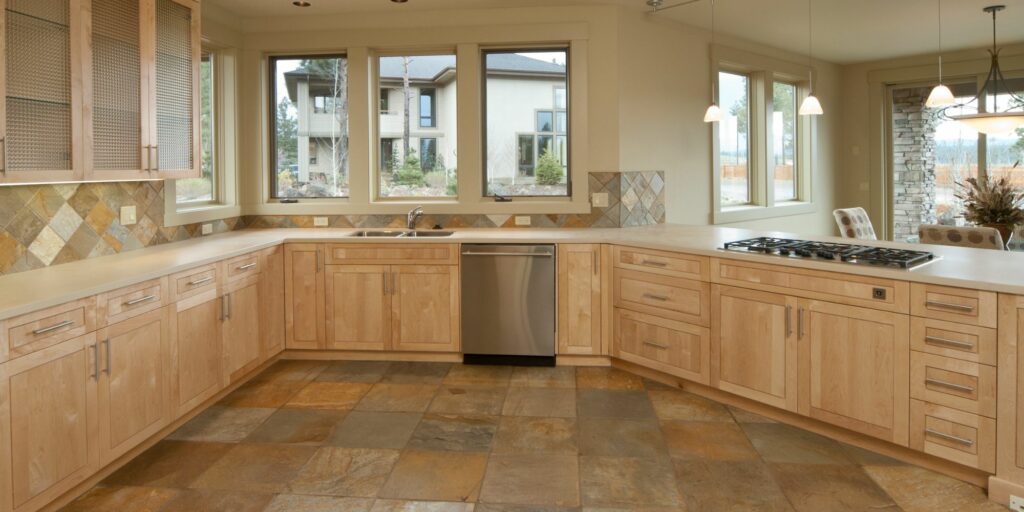Introduction
Creating a beautiful and functional kitchen floor is an essential aspect of any home renovation. The right kitchen floor tiler can make all the difference in achieving the perfect balance between aesthetics and durability. This article will explore tips and tricks from Northampton’s top kitchen floor tiler to help you create the stunning kitchen floor you’ve always dreamed of.
Choosing the Right Tiles
Material Options
There are several materials available for kitchen floor tiles, each with its advantages and disadvantages. Some popular options include:
- Porcelain: Durable, low maintenance, and available in a variety of designs and finishes
- Ceramic: Cost-effective and easy to install, but less durable than porcelain
- Natural stone: Adds a luxurious touch, but may require more maintenance and can be more expensive
Tile Size and Pattern
When selecting the size and pattern of your kitchen floor tiles, consider the following:
- Larger tiles can make a small space appear bigger
- Smaller tiles work well for intricate designs and patterns
- Experiment with different tile layouts, such as herringbone or chevron patterns, to add visual interest
Proper Tile Installation
Surface Preparation
Before tiling, ensure the surface is clean, dry, and level. Proper surface preparation can prevent issues such as uneven tiles or cracking grout.
Tile Adhesive and Grout
Using the right tile adhesive and grout is crucial for a successful installation. Some tips include:
- Choose a flexible adhesive for areas with movement or temperature fluctuations
- Select a water-resistant grout for damp environments, like kitchens or bathrooms
- Use a grout color that complements the tile and design
Sealing Tiles
Sealing your kitchen floor tiles can protect them from stains and moisture. Some tips for sealing include:
- Choose a sealer appropriate for your tile material
- Follow the manufacturer’s instructions for proper application and drying times
- Re-seal tiles as needed to maintain their protective qualities
Finding the Best Kitchen Floor Tiler in Northampton
Finding the right tiler in Northampton is crucial for a successful kitchen floor installation. Consider the following when searching for the best kitchen tilers near you:
- Experience: Look for a tiler with extensive experience in kitchen floor installations
- Portfolio: Review the tiler’s portfolio to ensure their work meets your expectations
- References: Ask for references from previous clients to verify their quality of work
- Quotes: Obtain quotes from multiple tilers to compare prices and services
FAQs
What is the best type of tile for a kitchen floor?
Porcelain tiles are often recommended for kitchen floors due to their durability, low maintenance, and variety of design options. However, the best tile for your kitchen floor will depend on your preferences, budget, and specific needs.
How do I maintain my tiled kitchen floor?
Regularly sweep or vacuum to remove dirt and debris. Clean the floor with a damp mop and a mild detergent suitable for your tile material. Avoid abrasive cleaners, as they can damage the tile surface. Sealing the tiles and grout can also help protect them from stains and moisture.
How much does it cost to hire a kitchen floor tiler in Northampton?
The cost to hire a kitchen floor tiler in Northampton can vary depending on factors such as the size of the project, the type of tiles, and the complexity of the design. It’s essential to obtain quotes from multiple tilers to compare prices and services.
Conclusion
Creating a stunning and durable kitchen floor requires careful planning, the right materials, and expert installation. By following the tips and tricks outlined in this article, you can be well on your way to achieving the perfect kitchen floor for your home. When you’re ready to transform your kitchen with the help of the top kitchen floor tiler in Northampton, reach out to the experts at AG Tiling for a consultation.

